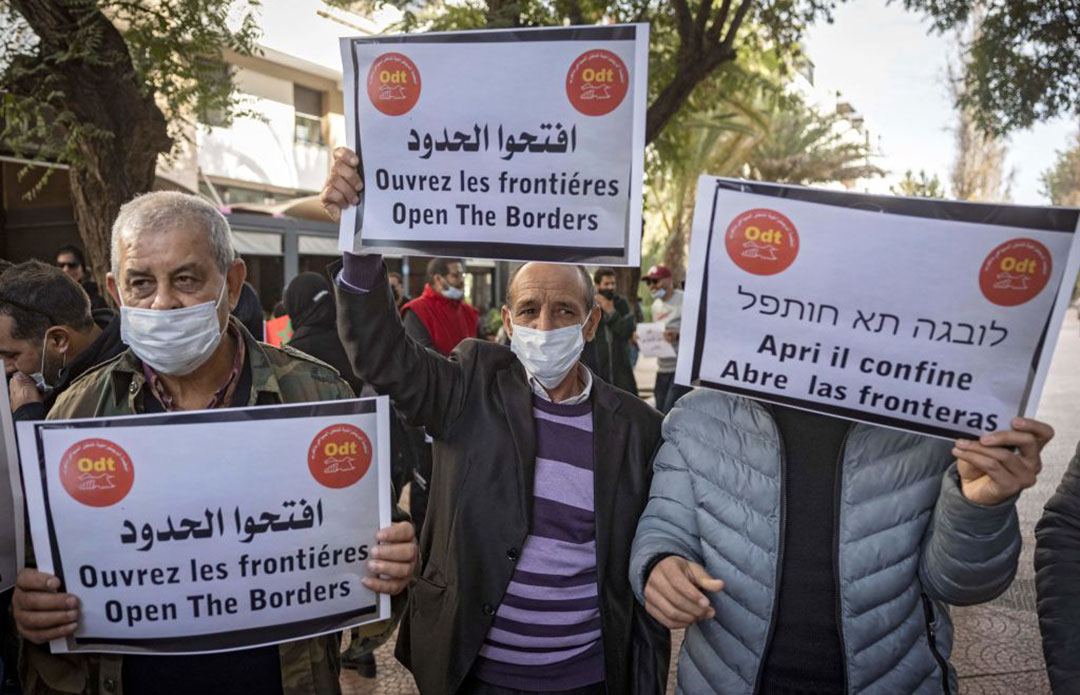End of COVID-19 Pandemic May be Near, WHO Says
ADF STAFF
Having taken “a brutal toll” on Africa, COVID-19 appears to be shifting out of the pandemic phase and health officials should be able to manage the disease long term, according to the World Health Organization’s (WHO’s) regional head for Africa.
Dr. Matshidiso Moeti made the announcement during a February 10 news briefing. Citing World Bank statistics, Moeti said the pandemic, which has claimed more than 247,000 lives on the continent, had also pushed 40 million Africans into poverty.
“The pandemic is moving into a different phase,” Moeti said. “We think that we’re moving now … into what might become a kind of endemic living with the virus. Over the past two years, the African continent has gotten smarter, faster and better at responding to each new surge in cases of COVID-19. Against the odds … we’ve weathered the COVID-19 storm with resilience and determination.”
Moeti’s optimistic outlook about potentially reaching COVID-19’s endemic phase in Africa was tempered by WHO Director-General Tedros Adhanom Ghebreyesus, who said days earlier that it was premature for countries to think that the pandemic’s end was imminent.
“Wherever you live, COVID isn’t finished with us,” Tedros said in a report by Al-Jazeera, adding that new variants will likely appear.
Moeti also acknowledged that the number of COVID-19 infections in Africa could be seven times higher than official data suggests, and deaths up to three times higher, due to surveillance deficiencies and lack of access to testing supplies.
Around the same time Moeti made her comments in late January, Malawian immunologist Kondwani Jambo of the Malawi-Liverpool-Wellcome Trust Clinical Research Programme released a study that revealed that a vast majority of Malawians were infected long before the omicron variant was detected in November.
“I was very shocked,” Jambo told National Public Radio.
At the time, Jambo said it had been months since Malawi had entered something akin to the endemic stage of the pandemic, when COVID-19 would become a more predictable seasonal illness, like the cold or flu. Jambo said it was likely that a combination of the original coronavirus strain, the beta and delta variants worked “to neutralize this omicron variant in terms of severe disease.”
On February 10, South African President Cyril Ramaphosa announced that he would end the nation’s 22-month pandemic-related state of disaster, noting that he had already lifted almost all economic and social restrictions.
“Our approach has been informed throughout by the best available scientific evidence, and we have stood out both for the quality of our scientists and for their involvement in every step of our response,” Ramaphosa said. “We are now ready to enter a new phase in our management of the pandemic.”
According to the United Nations, Africa’s capacity to manage COVID-19 has steadily improved, thanks to the increased availability of trained health workers, oxygen and other medical supplies. The number of intensive care unit beds has increased across the continent, from 8 per 1 million people in 2020 to 20 per 1 million people in February 2022.
The WHO also helped increase the number of oxygen production plants in Africa from 68 to 115, while also supporting the repair, maintenance and procurement of new oxygen plants, according to the U.N.


Comments are closed.